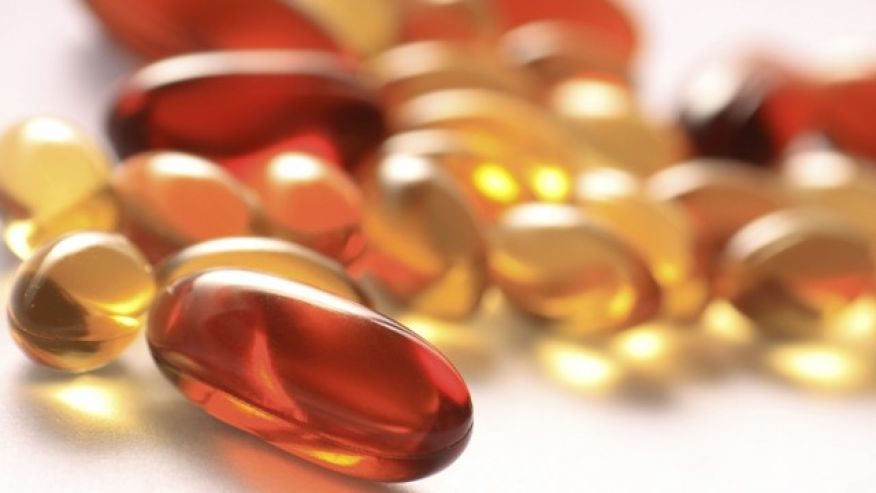If you work out, you need magnesium: It promotes recovery after strenuous exercise
05/19/2020 / By Zoey Sky

Magnesium is an essential nutrient that plays an important role in muscular health and recovery. After a grueling workout, you need to replenish your electrolytes and magnesium levels.
Magnesium and muscle recovery
In a study involving marathon runners, researchers discovered that magnesium was the most highly depleted electrolyte in the participants, with potassium a close second.
Athletes require magnesium because the mineral is essential for muscle relaxation. If you don’t have enough magnesium, your muscles will remain in a permanent state of contraction. This is why magnesium deficiencies cause cramps.
During intense physical activity, your muscles experience stress and your body naturally loses electrolytes. Replenishing your magnesium levels will help your muscles recover faster.
Magnesium has properties that aid in muscle recovery after exercise. As an anti-inflammatory, magnesium helps minimize any swelling, joint pain and other post-workout inflammation.
Magnesium also helps your body absorb calcium, which is needed by your bones and plays an important role in nerve function.
If you don’t get enough magnesium from your diet, your blood calcium levels will become elevated. This may cause heart problems and poor bone health. A long-term magnesium deficiency may also result in osteoporosis, especially in women.
The symptoms of magnesium deficiency
More than 60 percent of Westerners are magnesium deficient. Low levels of the nutrient are very common among hospitalized patients. Research shows that nine to 65 percent of patients suffer from magnesium deficiency.
Experts note that deficiency may be caused by either disease, drug use, impaired digestive function or inadequate magnesium intake.
About 30 percent of the U.S. and U.K. population consume less magnesium than the recommended daily intake.
Symptoms of low-level magnesium deficiency include:
- Muscle spasms
- Muscular symptoms (e.g., cramping)
- Prolonged muscle soreness
- Tension without improvement or recovery
Mild magnesium deficiency can also cause symptoms like:
- Anxiety
- Difficulty sleeping
- Inability to relax
Cellular testing is necessary to accurately determine if you have a mild deficiency since 0.3 percent of your body’s magnesium is stored in your blood serum.
Superfoods that will help boost your magnesium levels
You can request for a blood test to determine your the levels of magnesium in your blood serum. It is also a good way to know if you are in need of supplementation.
Patients diagnosed with a magnesium deficiency or those with digestive issues that affect nutrient absorption may benefit from taking a high-quality oral supplement. If you’re not used to taking dietary supplements, consult your physician to determine possible drug or allergic interactions, as well as appropriate dosage.
Alternatively, you can add the following magnesium-rich superfoods to your diet:
- Bananas
- Cocoa
- Dark chocolate
- Dark green leafy vegetables (e.g., spinach)
- Dried apricots
- Dried pumpkin seeds
- Fish
- Grains
- Legumes
- Natural yogurt
- Nuts and seeds
You can also consume drinks designed to replenish electrolytes lost during exercise. However, make sure that these beverages don’t have added sugars and contain sufficient amounts of magnesium. (Related: Eat these 6 magnesium-rich foods to boost your overall health.)
Transdermal magnesium for muscle recovery
Another way for you to replenish lost magnesium is by using topical products.
Transdermal products like bath salts, lotions and sprays allow your skin to absorb magnesium for immediate assimilation by your muscles. Topical products suit those with long-term magnesium deficiency and are also great for helping sore muscles recover after intense sports or workouts.
Magnesium is an essential mineral your body needs. Getting enough magnesium from your diet or taking supplements is crucial for muscle recovery and for your overall well-being.
Sources include:
Tagged Under: #nutrition, diet, electrolytes, exercise, fitness, functional food, Magnesium, magnesium deficiency, minerals, muscle health, muscle recovery, nutrients, prevention, supplements
RECENT NEWS & ARTICLES
FoodCures.News is a fact-based public education website published by Food Cures News Features, LLC.
All content copyright © 2018 by Food Cures News Features, LLC.
Contact Us with Tips or Corrections
All trademarks, registered trademarks and servicemarks mentioned on this site are the property of their respective owners.


















